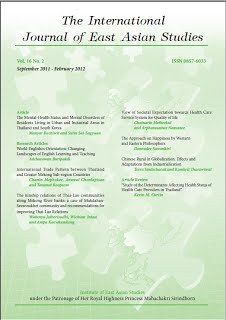World Englishes Orientation: Changing Landscapes of English Learning and Teaching
Keywords:
World Englishes, English learning and teaching, English education, Global English.Abstract
Background: Current English landscapes in different parts of the world in both school and non-school contexts have clearly demonstrated diverse profiles and unique characteristics of English users. In terms of English education, it is apparent that the field has been moving from the direction of achieving correctness of language use to developing higher language awareness.
Objective: In the world where cultures and identities have become more plural and the roads are heading in more diversified directions, this paper essentially addresses a principle of a World Englishes or a variety of English theory with an aim to cast light on a theoretical ground of the concept that increasingly affects language ideology and teaching pedagogy in the world context.
Result: The paper begins with a description, showing how the World Englishes notion has gained its name and developed and then describes its essence and the way the concept is
recognized. Basically, the paper addresses the notion of World Englishes by building on the following episodes of: 1) historical background; 2) the old paradigm: Western-centered views; 3) SLA fallacy and the spread of English; and 4) a new paradigm: leaving the fixity paradigm.
Discussion and conclusion: In the concluding section, the paper highlights major premises, the significance and the pedagogical ramification of the World Englishes concept to English education and classroom settings that suits learners’ needs and the world current trend. It states that the World Englishes approach seeks to fruitfully pave a new philosophical direction,
value, and attitude toward language use.



